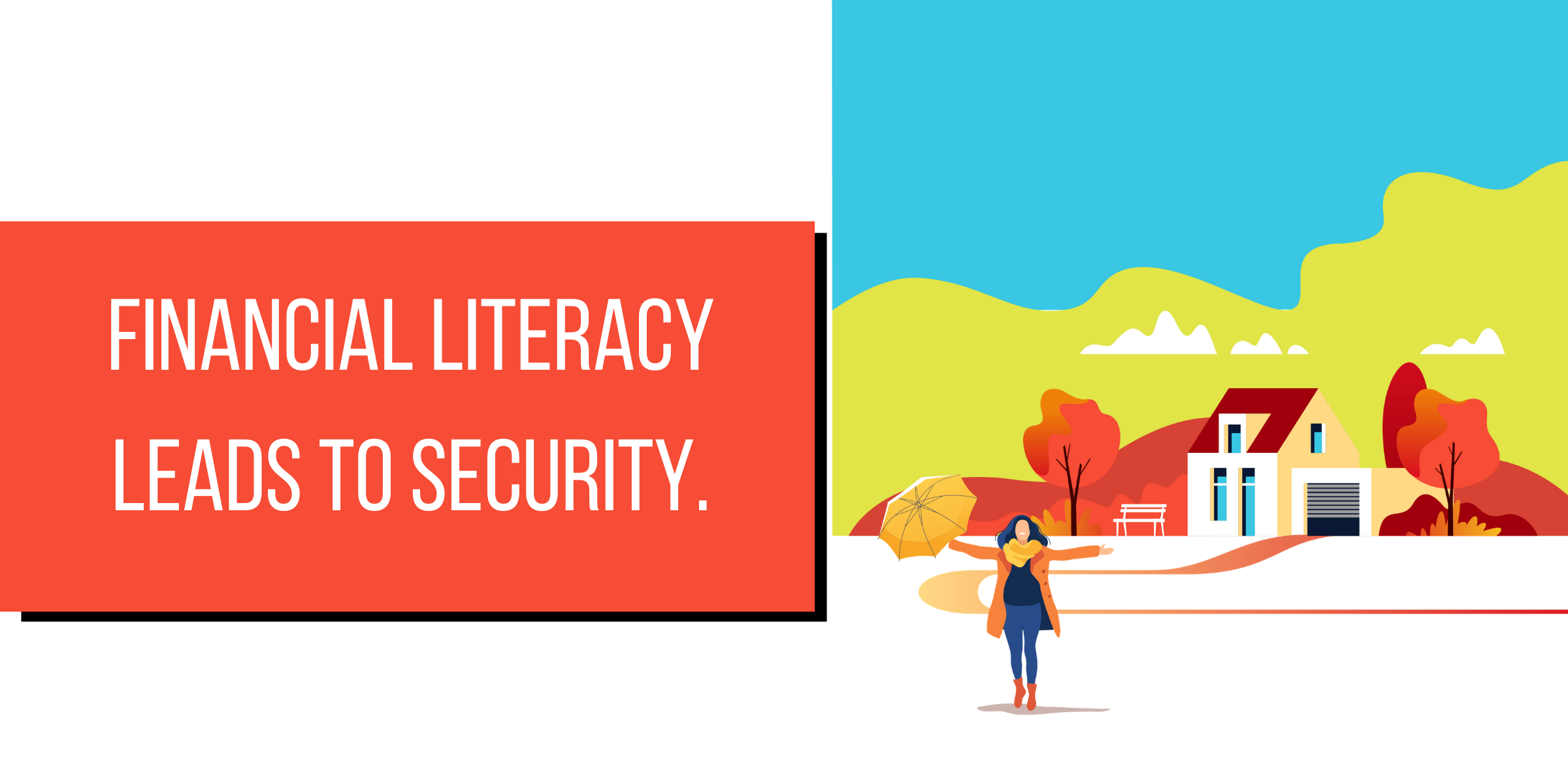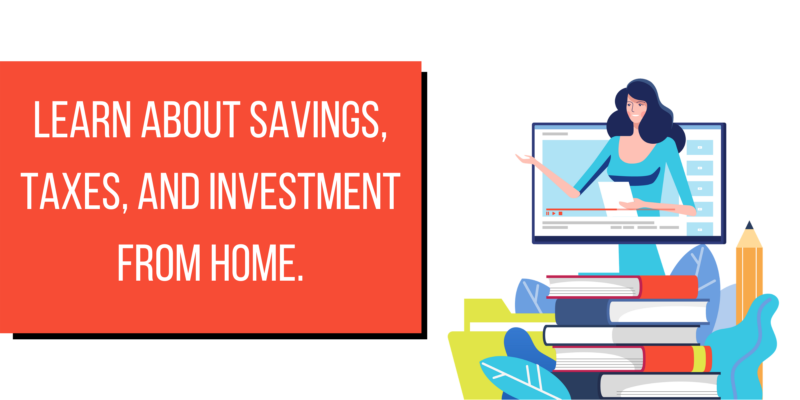We all need to manage money. No matter the amount you earn or manage, making better decisions with yours and others’ money lets you live more comfortably and sustainably. However, unless you take business, economic, financial, or accounting classes, you might have never received an education in managing money.
While that’s incredibly frustrating, there are many things you can do to gain a better understanding of personal, professional, and organizational financial management.
Changing the ways you save, spend, and invest money can improve your life in many ways. You’ll be far more likely to afford things long term. You can set up a plan to help guide you to retirement. You might be able to make pertinent investments that pay off in the long or short term. Most of all you’ll gain a perspective of prudence and start understanding what financial decisions often lead to adverse outcomes for yourself and others.

For some people, getting an education in finance can lead to a lucrative career. You’ll likely need to earn a degree in the field to reap these benefits, but studying on your own, or in a free or standalone course can help prepare you to pursue a degree in finance, accounting, business, or a related field.
There are many paths you can take to developing your financial skills. These depend on how much time and money you can commit to this pursuit, and your goals.
Let’s explore the different roads at your disposal, along with positives and negatives for each:
Self-Teaching Yourself How to tend Finances
Doing a cursory Google search is a great way to begin. Tending finances has a lot to do with organizational skills. Whether you’re working with your own, a prospective business, or trying to manage money for others, you’ll need to follow some of the same steps.
You need to create a budget, taking into account money coming in, and what your necessary expenses are. If you’re dealing with debt, that’s another essential factor to put in the expense category. If debt has become a severe problem for you, look into ways to consolidate your debt into manageable monthly payments. Many resources will help you do precisely that.
The more expenses you can eliminate, the more you’ll be able to save and commit towards building wealth. Saving money wherever, and however, can also empower you towards financial freedom. By setting up a plan to put money away, you can make sure to follow through. Many apps can help you manage your finances, make sound investments, as well as take small percentages of your purchases and put them away. You’ll want to find as many ways as you can to build a nest egg that can go towards financial independence, business ideas, retirement, or other money goals you have.
If you’re looking to build a business, you’ll need to understand your available credit and best practices for taking out loans. No matter what you want to do, what’s most important is spending less than you earn. The more significant a gap between what you earn and what you spend, the more financial utility you have.
Ask yourself and consider the following:
- What finances are you managing?
- If they’re just yours it’ll be simpler, but if you’re managing a household or a business, you’ll likely need more assistance in the form of useful apps, software, and advisors.
- Are there ways to increase your earning power?
- Whether it’s picking up more work, making sound investments, applying for a better paying job, or asking for a raise at work, craft a plan for increasing your earning power.
- If you run a business, what can you do to become more profitable?
- Study your competitors and what’s impacting your success. Where can you cut costs? What do you do that’s most important to your customers? How can you make yourself indispensable to those who rely on you, and build out your client base?
- Where should you invest your money?
- Prioritize long-term return on your investment over financial long shots. Look at where you bank. Is it the best option in terms of services, and the interest you garner on what you keep in the bank?
- Measure everything. Once you are tracking your expenses and your income, it’ll be much easier to set up a system that allows you to save.
- Services like Mint can help you manage your budget and make sure you’re saving. Plus, it’s free.
- What are you doing to expand your financial knowledge?
- Many people learned how to manage finances for themselves and others through self-education. Start reading and don’t stop. Budgeting doesn’t just involve money; it’s also about your time. The more time you’re committing to learning and following through on reaching your financial goals, the better your results. Start reading about the subject, and don’t stop. There are limitless resources on the Internet that can help you do exactly this.
- Here’s a great list of online sources that can help you educate yourself.
- Study the world and use what you learn to make money. For example, there’s been an ongoing swine fever that’s been massacring pigs in China. In September, CNN reported that 100 million Chinese pigs had died as a result. While this has been developing, pressure mounted to end a trade war between the U.S. and China. When a preliminary trade agreement was reached in December, swine futures jumped in response.
- As climate change, disease, the backlash to globalization, and political and economic trends develop, your ability to track and react to these developments can make you money through investments. Of course, these are speculative, short-term investments that aren’t as sustainable as traditional longterm, guaranteed yield investments. However, you’ll likely need to find a way to get your money to make money for you if you want to improve your finances.
- Even if you’re just starting, creating a plan, educating yourself, and making changes to how you spend and invest your money will prove invaluable longterm. This is something you can do on your own, with the help of free resources available via the Internet.
Pros
- Self-study is free
- By educating yourself and making changes, you can definitely improve your financial situation, whatever it’s starting at
- Disciplining yourself in your financial education and spending habits will be useful in all areas of your life
Cons
- The sheer amount of resources and information about financial management can be daunting
- Some people might prefer a more structured system for learning about financial literacy and management
- This will take discipline and self-motivation that might be increased through more structured study
Not-For-Credit Financial Classes

There are many courses you can take that can increase your financial literacy, yet don’t lead to a degree or college credit. They can still improve your life and finances in many ways, through teaching you valuable lessons, strategies, along with a better understanding of governance and resources at your disposal.
You can access some of these courses for free online. Many are offered by MOOC providers like Udemy, edX, or the Khan Academy. MOOCs are Massive Open Online Courses. They’re often free or have a small price attached to them. You might want to consider one of the following courses:
- Personal Finance 101 by Udemy: This course covers taxes, credit, going to college, getting married, buying a house, and more.
- The Core Four of Personal Finance by Udemy: You’ll learn about reducing expenses, managing debt, retiring, getting a home, among other pertinent financial issues.
- Personal Finance Planning by edX: Educate yourself on financial jargon and the rules that govern finance through this free course.
- Personal and Family Financial Planning by Coursera: This course is free without certification, and was created by the University of Florida. It goes over building a financial plan, investing, minimizing risk, and more.
- Finance for Everyone by edX: This course will help you make decisions based on your income and expenses as an individual and professional. It’s taught by the University of Michigan.
- Financial Literacy by Alison: This interactive class covers budgeting, account management, taxes, government benefits, and much more.
Pros
- Let’s you learn about the byzantine aspects of finance from professionals
- Covers financial issues in a systematic way
- Free in most cases
Cons
- Requires hours of concentrated study
- Is done remotely
- May not address your specific situation
Financial Degrees
- Associates in Business Administration, Accounting, Economics, or related discipline
- Bachelors in Finance, Business Administration, Economics, Accounting, etc.
- Masters in Business Administration, Analysis, Finance, Economics, etc.
- Doctorate in Finance, Business Administration, Economics, etc.
Many business degrees can be taken online, either entirely, or with minimal in-person requirements.
Here at Degree Query, we’ve worked diligently to help you find resources that motivate and empower you to make useful decisions about your education and employment. Some of what we’ve done regarding finances includes:
- Top 15 Master’s in Finance Degree Programs
- What Jobs Can I Get With a Master’s in Finance Degree?
- What Are the Benefits of Earning a Master’s in Finance Degree Instead of an MBA?
- What Salary Can I Earn With a Master’s in Finance Degree?
- What Is the Benefit of an Accounting Degree Vs a Finance Degree?
- What Is the Difference Between a Business Degree and a Finance Degree?
- What Is the Difference Between an MBA and a Master of Finance Degree?
- What Can I Do With A Degree In Finance?
- How Advanced Does My Degree in Finance Need to Be to Get a Good Job?
- What Classes Will I Have to Take for a Degree in Finance?
- What Is the Demand for a Degree in Finance?
- What Are the Benefits of Pursuing a Degree in Finance?
- What Is the Fastest School for a Degree in Finance?
- What Is the Fastest School for a Master of Finance Degree?
- What Are the Highest-Paying Jobs in Finance?
